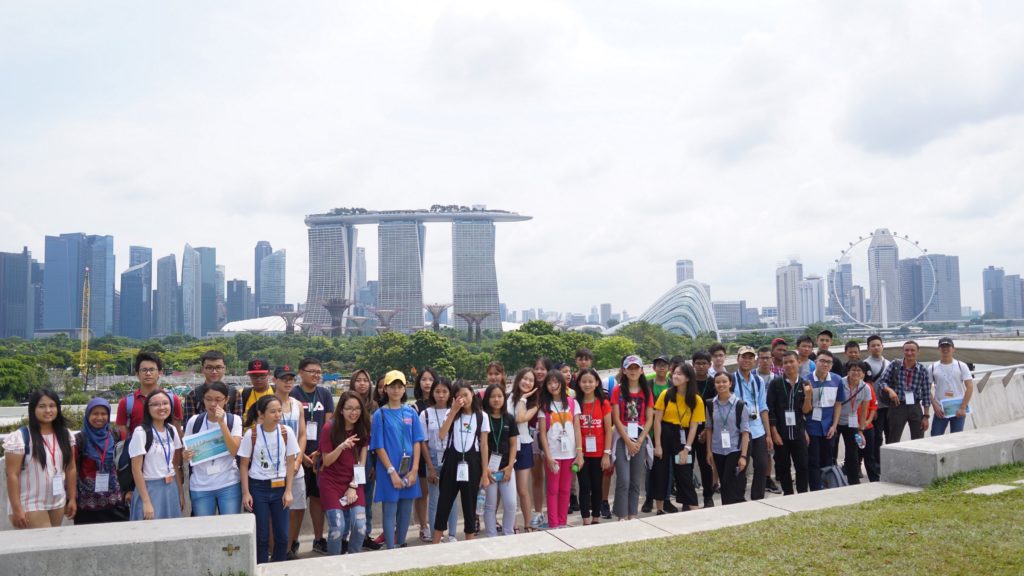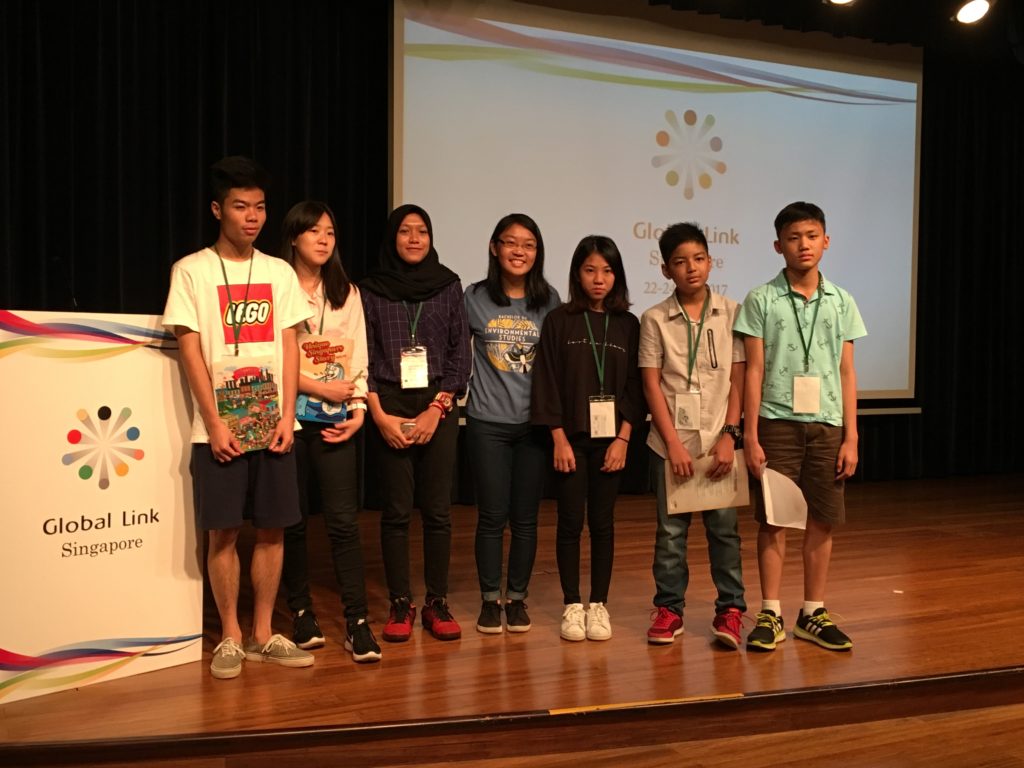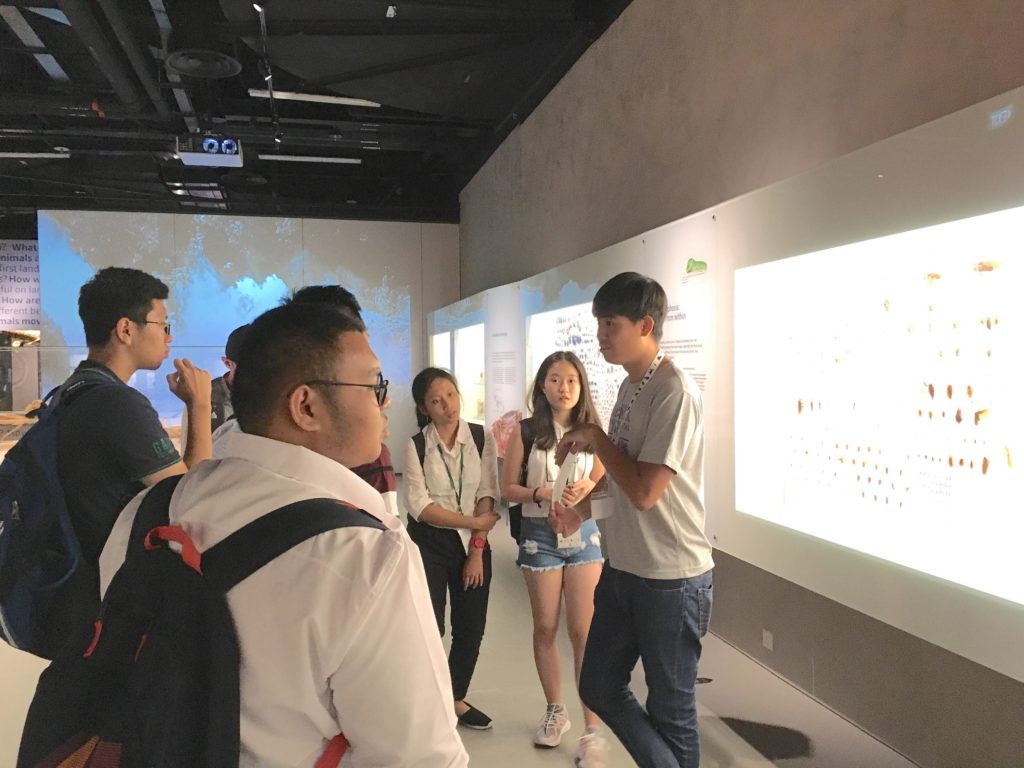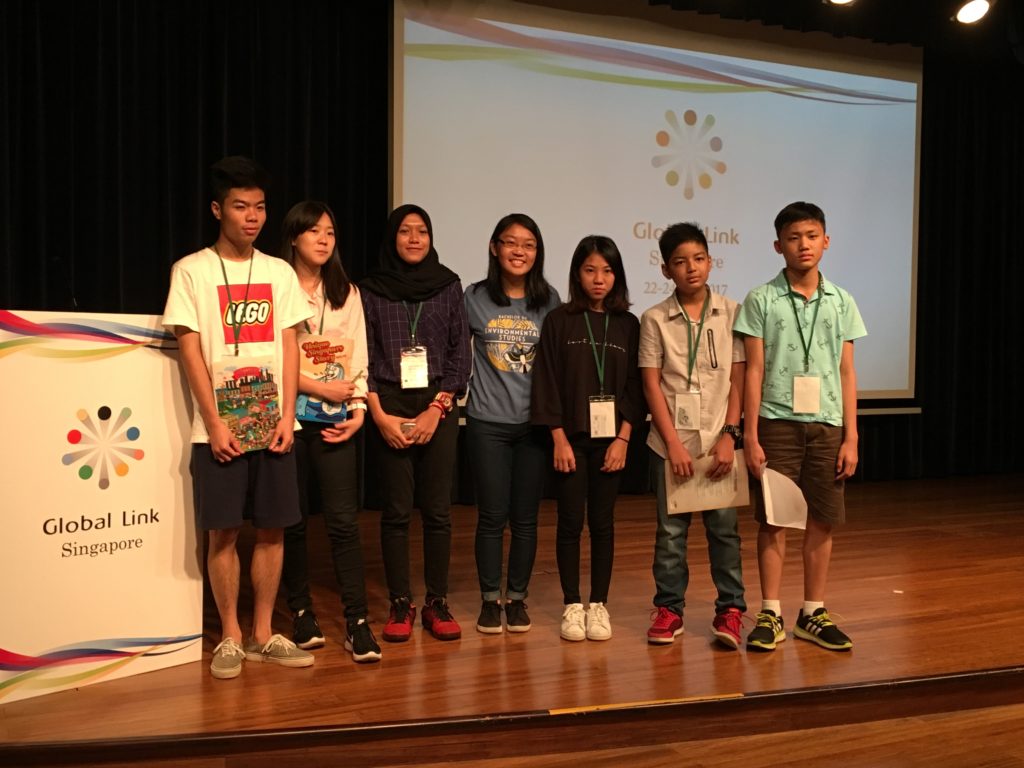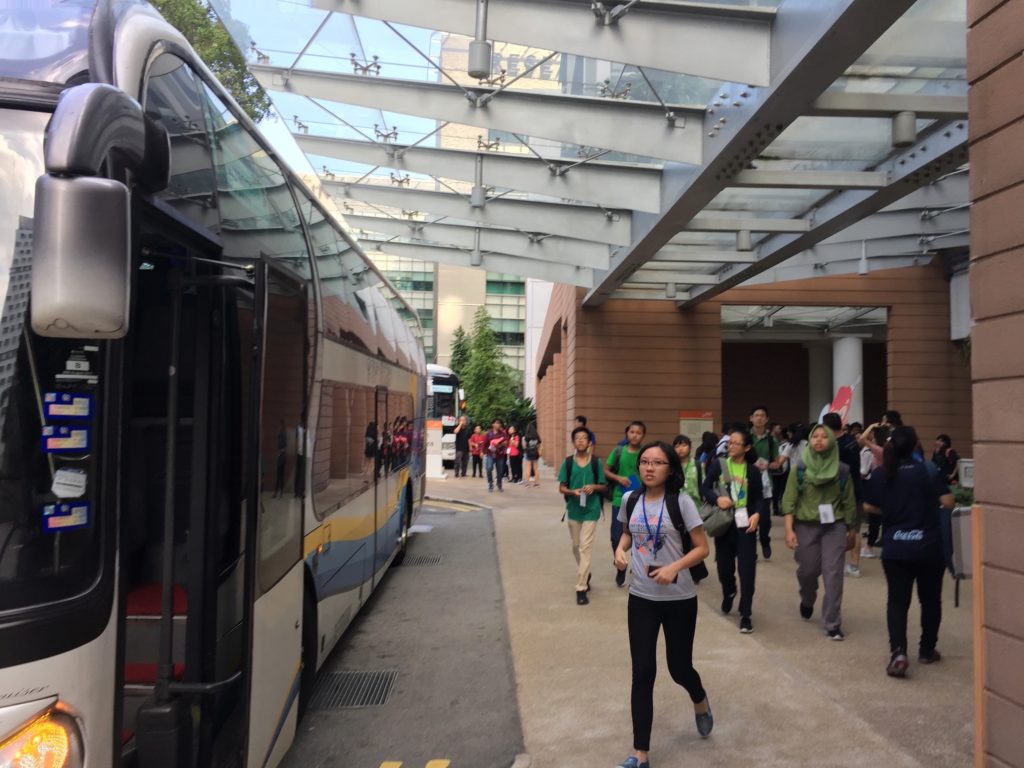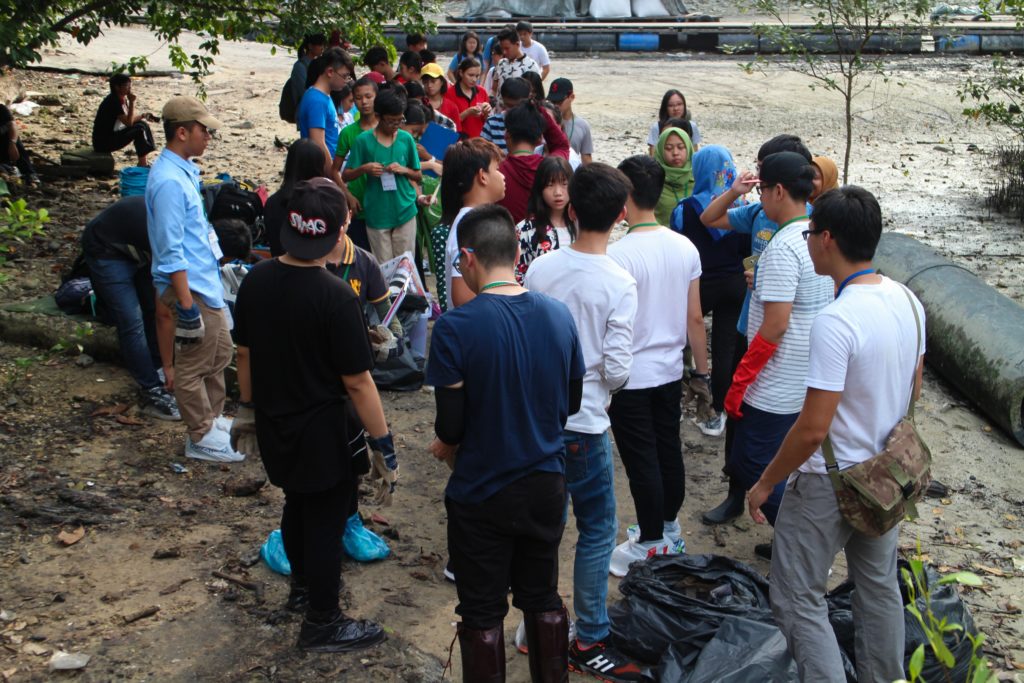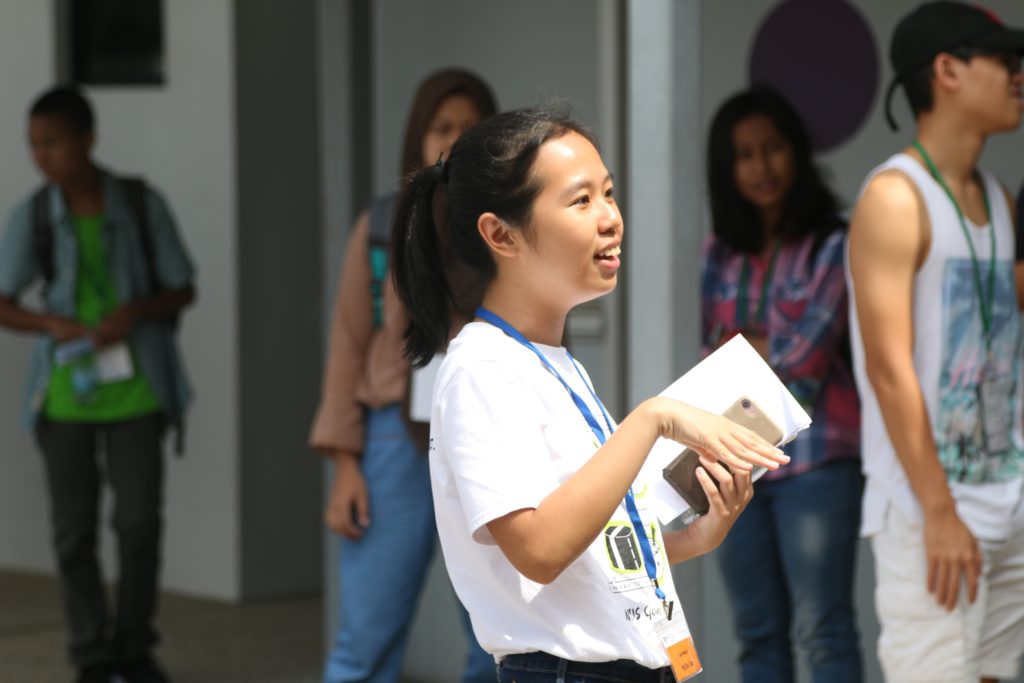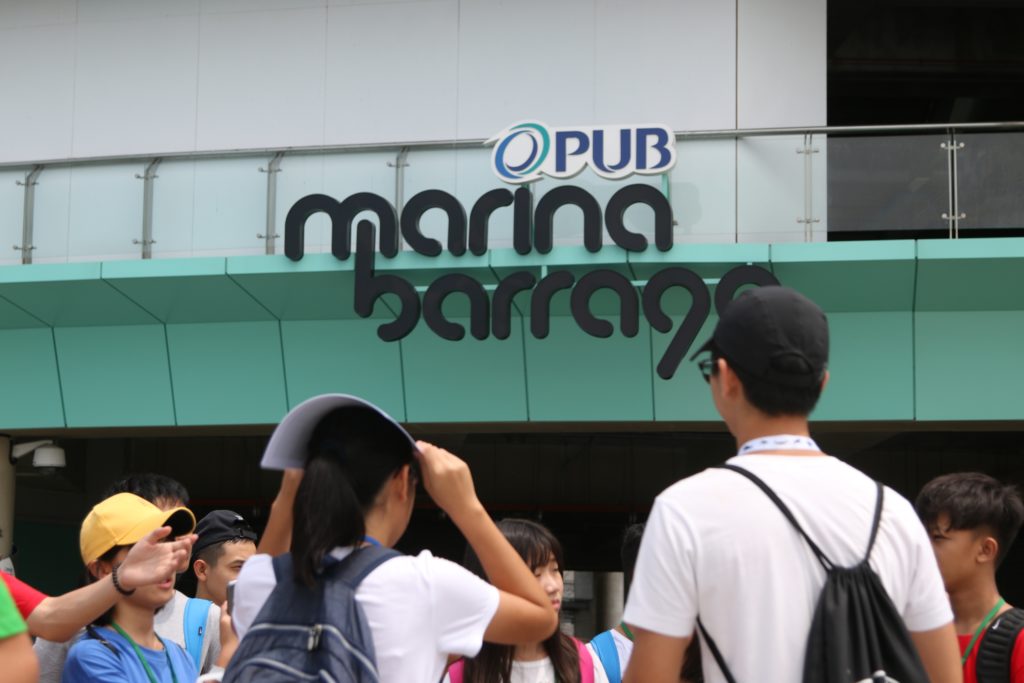Global Link Singapore 2017
““
In July 2017, BES students had our inaugural collaboration with Global Link Singapore, an annual Science and global issues conference involving international students. Spanning over six days from 19th to 24th July in Singapore, the event saw more than 250 students from seven participating countries in the Asia-Pacific region. The participants hailed from secondary and high schools in Indonesia, Japan, Myanmar, the Philippines, Thailand, and Vietnam. Global Link Singapore 2017 was co-organised by the JTB group and A Little Learning: The School, and supported by NUS, A*STAR, Science Centre Singapore, Singapore Tourism Board and the Japan Science and Technology Agency (JST).
In this collaboration, BES took the role of organising and providing content on the theme of environmental issues, which was the focus of the global issues segment of the conference. As part of the BES Student Committee’s objectives of outreach and education, our student committee planned a series of activities for our ASEAN students, centered on key environmental problems faced by the planet today. After six months of preparation, we were ready to share with our international friends our passion and knowledge. The participants were introduced to the Lee Kong Chian Natural History Museum (LKCNHM) where they were taken on a guided tour, attempted a 9-station amazing race around Utown, and even got their hands dirty for a coastal cleanup at Lim Chu Kang Beach.
Our participants were shown around the natural history museum through six stations spanning plant evolution, insect diversity, marine ecosystem, aqua-terrestrial animals, mammal diversity, and Singapore’s biodiversity and conservation efforts. Our very own BES students took up the role as guides and intrigued our young participants with new concepts and facts based on the variety of specimens found in the museum. These ASEAN students were certainly fascinated and eager to find out more as they bombarded our guides with questions! At the end of the session, they were challenged to a crossword puzzle on what they learned from the museum tour. The competitive spirit of the groups could be felt as an intense atmosphere fell on the museum hall as they put their heads together to try and solve it!
Occurring concurrently was an amazing race at Utown. Titled Operation: Planet Preservation, the game was built on the scenario of our Earth in danger from threats to the nine planetary boundaries, a concept familiar to any BES student. In their groups, the students went on a mission in search of nine stations around Utown which corresponded to each of the nine planetary boundaries. At each station, the students had to complete a task or obtain an answer which touched on critical environmental issues associated with the planetary boundary. For example, on the station of landuse change, the participants were told to pick out three common household items that contained palm oil. Many students were surprised to find out that seemingly innocent products like their favourite potato chips, cup noodles, not to mention body soap, contain ingredients derived from palm oil.
After listening to the depressing stories of the state of marine wildlife, especially that of our charismatic museum sperm whale and the collection of plastic items extracted from its stomach, the students could finally take action and free our seas from rubbish! We headed down to Lim Chu Kang Beach, a non-commercial beach which was accessed through special permission from the Singapore Land Authority and Singapore Police Coast Guard. The students were initially apprehensive as they were not used to entering a mangrove zone, much less for the purpose of picking up trash. We hoped they could come to realise that beaches and coastlines will only stay clean when the effort is put in to maintain it. In spite of the foreign setting with the muddy ground and humidity, our students managed to put their best foot forward and worked together to remove the many plastic pieces, straws, and debris. Our enthusiastic BES students reminded the participants of the magnitude and harm of marine litter. Additionally, various interesting organisms from the mangroves were pointed out to them, one example was an onch slug. In total, 75 kg of trash were collected from our short cleanup activity.
This event has been an enriching experience for both the BES organisers and our participants from ASEAN. In class, we have always been discussing the many environmental problems occurring within Southeast Asia – issues such as deforestation, illegal hunting of wildlife and marine pollution. Therefore, it was an eye-opening experience to interact with these young people from our neighboring countries and learn about their perspectives towards these topics. We hope that our event can encourage these students to become change makers and make a difference in their countries.
The above article is written by the organising committee of Global Link Singapore 2017.


